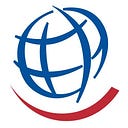Going Far Together: A Future for Women in Healthcare Around the World
By Dr. Naikhoba Munabi, plastic surgery resident at the University of Southern California and former Global Surgery Fellow at Operation Smile
“If you want to go fast, go alone. If you want to go far, go together.” — African proverb
When asked how I’ve been able to climb the ladder of success to where I am today, my answer is always simple: I didn’t do it alone.
I come from a family of physicians, including women such as my mother and grandmother. On the occasions that people have said my race or gender would limit my ability to succeed in my chosen career, I looked to my family to confirm that these opinions were wrong.
My inspiration and support came from outside of my family too. Female teachers, coaches, lab directors and classmates mentored and helped me believe in my capabilities. Even when I entered the arena of surgery where few women exist, I always had sources of encouragement to continue pushing forward in pursuit of my dreams.
Unfortunately, not all women in the world are so lucky.
Almost 1 billion women globally do not have formal employment because they lack access to education, encouragement to continue persevering in a career of their choice, or do not know what a woman can achieve. But 18 million more healthcare workers are needed in the world. It is vital that women enter and continue in medical careers to help address the needs of some of the poorest and most disenfranchised individuals worldwide.
Better mentorship can help get more women into healthcare. Earlier this year during Operation Smile’s inaugural Women in Medicine: Inspiring a Generation medical program in Oujda, Morocco, 25% of female volunteers said they struggled to find mentorship and guidance in their career despite wanting it.
In male-dominated careers, such as medicine, societal norms are not always encouraging of women. The presence of a mentor can be the difference between a woman entering and staying in healthcare or turning away from adversity.
25% of female volunteers said they struggled to find mentorship and guidance in their career despite wanting it.
Bringing 95 female medical professionals from 23 countries together in Oujda helped establish those critical mentorship contacts. During the program:
- 73% of women who weren’t able to find a mentor in their home countries were able to identify one during the mission.
- 100% wanted to maintain those professional relationships in the future.
- 97% of women were more confident in their ability to perform their jobs.
- 100% felt inspired to mentor women in their home countries.
The Women in Medicine medical program also inspired women to become leaders. Despite only 29% of volunteers having leadership experience with Operation Smile, 93% felt inspired to become a leader in the organization and 97% felt inspired to become leaders in their home country. Through this desire to lead, 99% of women felt they would also advance professionally and 97% hoped their careers would involve working with other women in the future.
Simply put, creating a collaborative environment for female healthcare professionals encouraged women from all over the world to continue advancing and forging the path for more women to follow.
One of the best parts of being a global surgery fellow has been finding commonality with so many people of diverse origins around the world. The world is brimming with talent, including exceptional female talent. Operation Smile’s female volunteers are role models to other young aspiring and ambitious women in their communities. The women I have met worldwide have been an inspiration to me. The Women in Medicine medical program was an ode to those female volunteers, their capabilities, their perseverance and their will to care for others.
Dr. Naikhoba Munabi is a resident physician in plastic and reconstructive surgery at the University of Southern California. She took two years away from clinical training to work with Operation Smile as a Global Surgery Fellow. During her time with Operation Smile she worked with teams in multiple countries with a focus on sub-Saharan Africa. Dr. Munabi’s public health interests include education, health systems strengthening, and women’s empowerment. Clinically, she plans to continue training to be a craniofacial surgeon.
